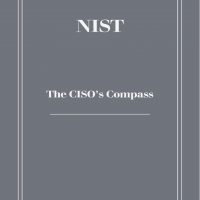In a startup’s journey, where agility meets innovation, Cloud Operations (CloudOps) serves as the digital bedrock. As startups scale, they often face an operational labyrinth that demands more than just human oversight. Enter Artificial Intelligence (AI) – not as a buzzword, but as a tangible accelerator for your CloudOps strategy.
AI: The Operational Alchemist
The alchemy of AI in CloudOps lies in transforming data into insights, actions into automation, and challenges into opportunities. Take, for instance, anomaly detection. Startups can leverage AI-driven tools like Moogsoft or Splunk, which sift through mountains of operational data to identify patterns and predict issues before they escalate. These platforms offer actionable insights, allowing you to preempt operational hiccups with precision.
Automated Efficiency
Automation is the cornerstone of efficient CloudOps, and AI is the mason. With tools such as Ansible for IT automation or Terraform for infrastructure as code, you can script and automate routine CloudOps tasks. AI enhances these tools, learning optimal patterns and performing tasks from deployment to scaling, without manual intervention, keeping your cloud resources lean and mean.
Incident Response with AI’s Reflexes
In the fast-paced startup environment, incident response is a race against time. AI doesn’t just speed up response times; it transforms them. Platforms like PagerDuty integrate with your operational stack, providing AI-powered incident response that ensures the right people are alerted at the right time, with the context they need to resolve issues swiftly.
The Security Sentinel
Cybersecurity isn’t just a necessity; it’s a startup’s operational shield. AI-powered security tools like Crowdstrike or Palo Alto Networks employ machine learning to detect and respond to threats in real-time, offering a level of security vigilance that’s crucial for protecting sensitive startup data.
Cost Intelligence
Cost management is a balancing act, especially for startups. AI doesn’t just cut costs; it brings cost intelligence. Tools like CloudHealth by VMware or CloudCheckr provide a detailed analysis of your cloud spend, identifying inefficiencies and suggesting adjustments, ensuring your startup’s resources are allocated in the most cost-effective manner.
Actionable Insights in Real-Time
Imagine having a virtual CloudOps consultant that offers real-time advice. Platforms like New Relic or Datadog integrate AI to monitor your cloud services, giving you a dashboard of actionable insights. From resource utilization to application performance, these tools help startups make informed decisions, backed by data-driven AI analysis.
AI-Driven Development Environments
For startups, the development environment is where dreams take shape. AI-driven environments like GitHub Copilot can assist developers by suggesting code, reviewing patterns, and even catching potential bugs before they become a problem, ensuring that your startup’s product is not only innovative but robust and reliable.
Learning from Every Interaction
Every user interaction is a learning opportunity. AI-powered chatbots and user interaction tools like Drift or Intercom can engage your users, solve basic issues, provide feedback to your development team, and continuously learn to serve your customers better. This isn’t just customer service; it’s CloudOps extending into the user experience realm.
The Network Brain
Your network is the startup’s circulatory system, and AI is its brain. With network management tools like Cisco’s DNA Center, which employs AI to manage network policies and performance, startups can ensure that their network is not just operational, but optimal.
The Collaborative Core
Collaboration is the core of startup culture, and AI reinforces it. Tools like Slack have integrated AI to organize conversations, prioritize tasks, and even help manage workflows. AI takes the collaboration tool and turns it into an operational hub for your startup.
Ethical AI in CloudOps
As you deploy AI in your CloudOps, it’s essential to consider the ethics of AI. Ensure that the tools and platforms you use are transparent about their algorithms, compliant with regulations, and respectful of user privacy. Ethical AI isn’t just good practice; it’s good business.
The Roadmap to AI-Enhanced CloudOps
Now, it’s time to sketch your roadmap to AI-enhanced CloudOps:
- Start Small: Begin with a single AI tool that addresses a specific operational need.
- Build Knowledge: Train your team on AI capabilities and limitations.
- Scale Gradually: As you grow comfortable, scale your AI integrations, layer by layer.
- Embrace Adaptability: Be prepared to adjust your approach as AI technology evolves.
Conclusion
AI in CloudOps is not a distant dream; it’s an accessible reality. For startups, it’s a means to extend capabilities, focus on innovation, and ensure operational excellence. By embracing AI, you can equip your startup with the tools it needs to navigate the complexities of the cloud, not just competently, but confidently and securely.


















